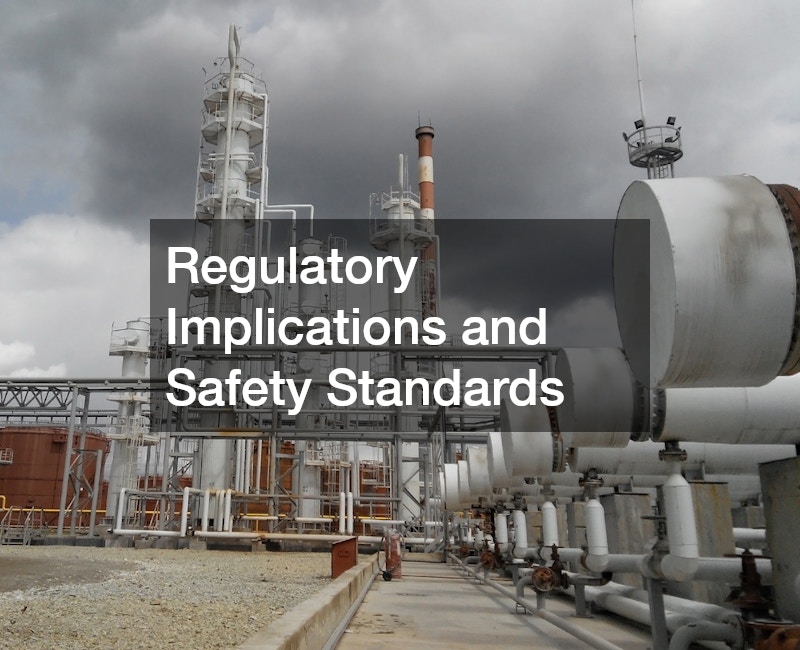
Natural gas plays a crucial role in our daily lives, providing energy for residential, commercial, and industrial purposes. However, natural gas itself is odorless, which presents a safety hazard. To mitigate this risk, utilities add natural gas odorants, such as mercaptan, to give the gas a distinct and easily detectable smell.
This olfactory enhancement is vital for safety, as it allows for the rapid detection of gas leaks by consumers and utility workers. Early detection of gas leaks can prevent potential disasters, including explosions and fires, thereby saving lives and property.
Hence, investing in reliable natural gas odorants is not only a wise decision for utility companies but also a protective measure for the communities they serve.
Economic and Community Benefits of Odorization
Natural gas odorization not only enhances safety but also contributes to the economic well-being of communities. By preventing gas-related accidents, odorization programs save communities significant amounts in emergency response and healthcare costs. Moreover, a safe gas supply reduces disruptions, supporting local businesses and contributing to economic stability.
Utilities that invest in natural gas odorants often enhance their reputational image as safety-conscious organizations. This can increase consumer trust and satisfaction, leading to a more stable customer base. Furthermore, community-wide safety measures bolster local resilience and cooperation, fostering a sense of mutual responsibility among residents and businesses.
The broader economic impact of the chemistry industry, which includes the production of gas odorization solutions, is significant. According to American Chemistry, the chemistry sector sustains 555,000 jobs nationwide. This highlights how investments in these safety-critical additives contribute to job creation and economic growth, benefiting both local communities and the national economy. In addition, odorization programs support regulatory compliance, reducing the risk of fines or penalties that could strain utility budgets. By proactively adopting odorant solutions, utilities demonstrate long-term cost savings, operational efficiency, and a commitment to public welfare—qualities that help secure funding, partnerships, and community support.
Technological Advancements and Innovations in Odorization
The field of gas odorization has seen substantial technological advancements, enhancing both efficacy and environmental impact. Modern additives are engineered with more stable chemical properties, ensuring consistent performance even under varying temperature and pressure conditions. These innovations maintain safety without compromising operational efficiency.
In addition to performance improvements, newer natural gas odorants often prioritize reduced environmental impacts. By utilizing formulations that minimize emissions and other byproducts, utilities can align their operations with sustainability goals. This approach not only fulfills regulatory requirements but also helps achieve corporate responsibility objectives in today’s environmentally-conscious marketplace.
The development of more refined detection methods complements the advancement of odorants themselves. Sophisticated technologies enable more precise monitoring and controlling of odorant levels, ensuring optimal safety while maintaining cost-effectiveness. Thus, investment in these advancements equips utilities with better tools to protect consumers and ensure public safety. Beyond immediate safety benefits, these innovations also help future-proof infrastructure. By adopting advanced odorization and detection systems, utilities can extend equipment life, reduce maintenance costs, and adapt quickly to evolving regulatory standards. This forward-looking strategy supports operational resilience while strengthening community confidence in the reliability of local energy services.
Regulatory Implications and Safety Standards
Regulatory frameworks in the energy sector require high safety standards for natural gas distribution, with odorization being a critical component. Compliance helps utilities prevent gas-related incidents and avoid serious legal and financial consequences, while also reinforcing public trust. Regular inspections ensure utilities maintain proper odorant levels. These audits let companies showcase their commitment to safety. Noncompliance can lead to fines and reputational damage—risks that can be mitigated through consistent odorization practices. As safety and environmental concerns grow, regulations will likely become more stringent. Investing in high-quality odorants and supporting technologies allows utilities to stay ahead of evolving requirements and establish themselves as industry leaders.
Natural gas odorants are essential for early leak detection, helping prevent accidents, save lives, and protect property. As part of the broader chemistry industry, they also support economic growth and job creation. For utility companies, partnering with a trusted provider like M Chemical can elevate safety and operational standards. Our proven expertise ensures your organization remains compliant, efficient, and well-prepared for the future. In addition, partnering with specialists gives utilities access to training resources, technical guidance, and reliable supply chains. These added benefits reduce downtime, improve response capabilities, and strengthen community confidence. By choosing proactive odorization strategies, utilities safeguard both their customers and long-term operational resilience.


